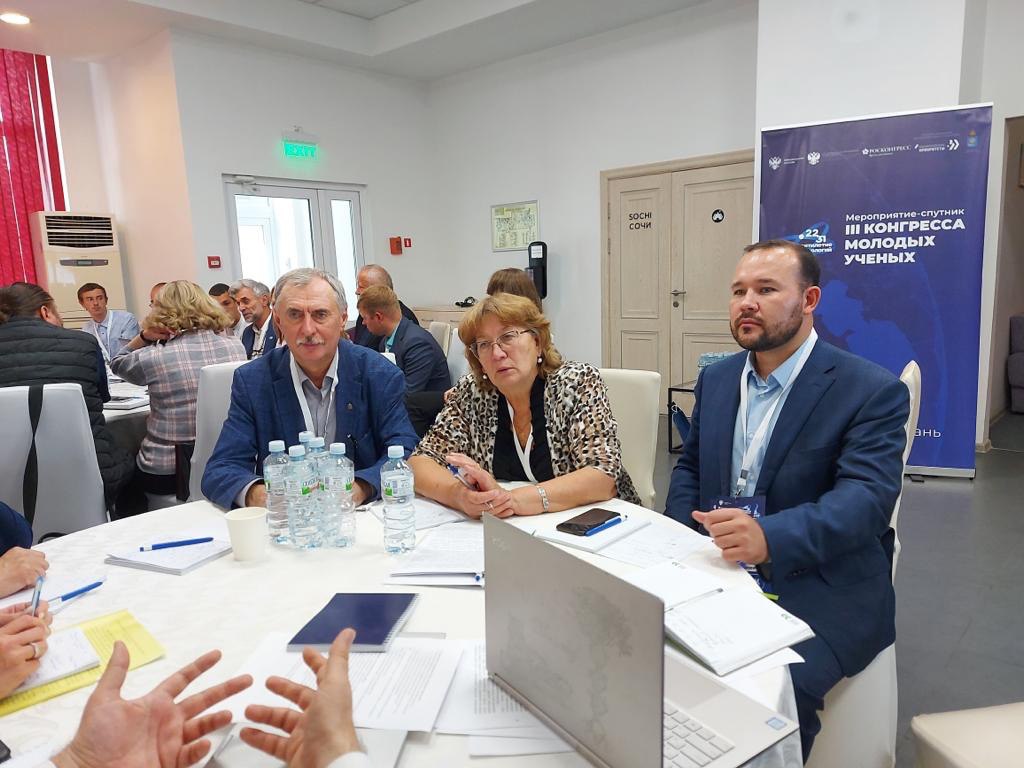Environmental scientists explain mechanisms behind falling numbers of Caspian roach

Professor Nafisa Mingazova and Senior Lecturer Nail Nazarov joined an expert panel on biological resources of the Volga-Caspian region in Astrakhan, Russia’s large port city near the Caspian Sea.
Astrakhan held the third – and final – companion event of the 3rd Congress of Young Scientists (scheduled for 28 – 30 November in Sirius Federal Territory). It was attended by representatives of regional authorities, business and scientists from different regions of Russia. Together they proposed and developed ways to solve urgent environmental problems of Astrakhan Oblast. The event united more than 60 scientists from 14 cities of Russia. They were faced with the task of creating projects to solve environmental problems of the region. The task of the first scientific group was to create a comprehensive system of atmospheric air quality monitoring in the Astrakhan region. The second group of experts conducted research at the scientific-experimental base, a fish breeding enterprise for sturgeon species fish farming. KFU scientists took part in the work of the group on the restoration of bioresources of the vobla, the most valuable commercial species in the Caspian Sea. The work was evaluated by an expert admissions committee including ministers and heads of state services headed by Igor Babushkin, Governor of Astrakhan Oblast.
“Caspian roach is a commercial fish and a brand of this region. Lately, its numbers have been falling noticeably,” says Professor Mingazova.
The workgroup discussed this problem, looked at its possible reasons, risks, and threats, as well as solutions in light of the rapid shallowing of the Caspian Sea.
“We concluded that there were a number of reasons for the decline in the roach stocks. One of the main ones is the drop in water levels. At present, the global decline in water level in the Caspian Sea continues – by about three meters. It is known that the Caspian Sea is cyclical in its hydrological regime: every 40-70 years there are ups and downs. After the fall of water level in the 70s of the last century, this cycle of fall has returned again. Now the Caspian Sea is in a period of recession, and the water flowing down the Volga cannot yet compensate for the level of the Caspian Sea. Consequently, many vast spawning grounds, which used to be flooded, are drying up,” continues the Professor.
Taking into account that the cyclic regime of the Caspian Sea cannot be changed, the KFU scientists proposed measures to optimize the hydrological regime of the Lower Volga, optimization and hydro-amelioration of spawning grounds, repair and creation of new spawning and rearing farms, development of methods for artificial reproduction of the Caspian roach and many others.
Another proposal was to prohibit any roach fishing for the next five years, which should be sufficient to restore the population. The researchers also recommended working on roach farming, which is rather challenging for short-cycle fish species.
According to Mingazova, the fishing ban proposal was met with skepticism, in part due to the fact that neighboring countries may still continue fishing even if Russia decrees the ban unilaterally. That’s why international consultations are needed on this matter.
“The term of temporary cessation of exploitation of wobla for fishery purposes is five years. But only prohibitive methods cannot solve the problem. All the steps proposed by us should be carried out in a complex – with scientific support, study of the background state of the species, improvement of natural spawning grounds and hydro-technical methods of water level control in the lower reaches of the Volga River,” adds Nazarov.

